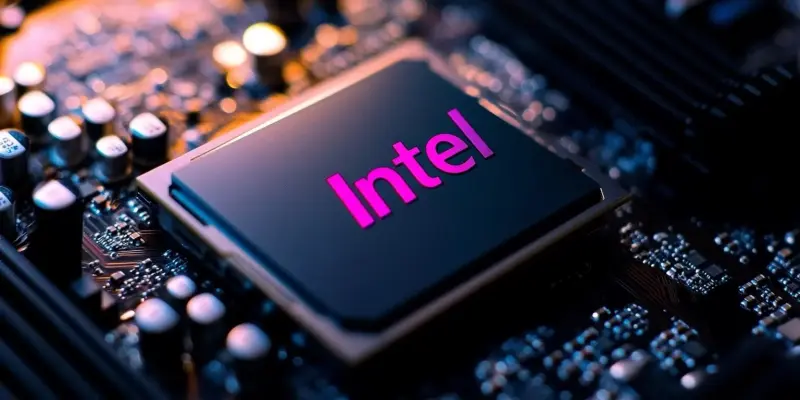The tech industry was taken by surprise when Intel announced a major strategic shift in their AI accelerator lineup, moving away from their next-gen Falcon Shores GPUs toward a new project named Jaguar Shores. Intel initially touted Falcon Shores as a groundbreaking development in their AI business, but the company has now opted to halt its progress, concluding that it cannot compete in the current market. This pivot comes as Intel aims to deliver a more comprehensive rack-scale solution with Jaguar Shores.
Lessons From Falcon Shores
Intel’s decision to change course was heavily influenced by industry feedback and a deeper understanding of market needs. Michelle Johnston Holthaus, interim co-CEO, elaborated that while Falcon Shores boasted strong specifications, including the TSMC 3nm process and CoWoS-R packaging with a TDP of 1500W, it lacked the integrated solution that customers require. The failure of Falcon Shores highlights the critical lesson that simply providing high-quality silicon isn’t sufficient. Customers are increasingly looking for products that offer cost efficiency and computational effectiveness in a holistic manner. As a result, Falcon Shores will now function solely as an internal test chip, allowing Intel to refine its technology and better adapt to real-world demands.
This move also reflects Intel’s response to the underwhelming performance of their Gaudi lineup, which faced similar challenges. Intel’s recognition of the necessity for integrated solutions marks a significant pivot in their approach to the AI market. This strategic adjustment underscores the importance of listening to customer feedback and adapting product development accordingly. The industry-wide shift towards complete, rack-scale solutions rather than standalone technologies signals a broader trend that Intel can no longer ignore if it wishes to remain relevant in the rapidly evolving AI landscape.
Aiming for Market Relevance with Jaguar Shores
By redirecting their efforts to the next-gen project, Jaguar Shores, Intel is attempting to produce a more practical and market-ready AI solution. The new focus demonstrates Intel’s commitment to overcoming their past shortcomings and taking significant steps to regain competitiveness in the AI sector. Jaguar Shores aims to deliver not just superior technology but also an integrated system that addresses the full spectrum of customer needs. This strategy could potentially help Intel catch up to industry leaders like NVIDIA, who have successfully implemented comprehensive AI platforms.
Jaguar Shores represents a more holistic approach to AI technology by aiming to provide a seamless rack-scale solution. This development aligns more closely with current industry trends and the increasing demand for cohesive, efficient AI systems. The emphasis on rack-scale solutions underscores Intel’s recognition that the market prioritizes functionally integrated products over isolated technological advancements. Such a strategy is essential for Intel to regain its footing and establish a strong position in the AI sector.
Future Prospects and Strategic Implications
The tech world was caught off guard when Intel revealed a significant shift in their AI accelerator strategy. Initially, Intel had heavily promoted their upcoming Falcon Shores GPUs as a pioneering advance in their AI endeavors. However, the company has now made the decision to halt the development of Falcon Shores, realizing it cannot stay competitive in the present market. Instead, Intel will redirect their focus to a new initiative called Jaguar Shores. This new project represents Intel’s effort to provide a more holistic, rack-scale solution. The pivot to Jaguar Shores is aimed at addressing current market demands more effectively, offering a more integrated approach, and showcasing Intel’s adaptability to changing technological landscapes. The decision underscores Intel’s commitment to reevaluating and realigning their strategies to remain relevant and effective in the fast-paced tech industry, where innovation and timely execution are critical. This shift is a testament to Intel’s responsiveness to market dynamics and their drive to maintain a leading position in AI technology.

